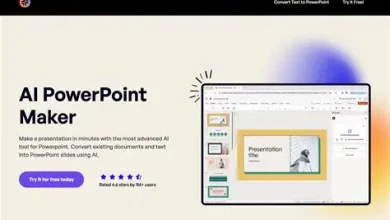
In the world of fast-moving consumer goods (FMCG), speed is everything. Markets evolve quickly, consumer preferences shift overnight, and product lifecycles are shorter than ever. In this context, traditional research approaches often struggle to deliver insight fast enough to influence business decisions. That’s where AI-powered qualitative research comes in. Gen AI-powered insights gathering is redefining traditional research methods by providing faster, deeper consumer insights that propel brands to the heart of the latest consumer trends, thinking and opinions in a matter of days. This speeds up the ideation, testing and research process for FMCG brands. From tracking emerging trends to shaping boardroom strategies, AI is reconfiguring the role of qualitative research within some of the world’s most competitive sectors.
Trendspotting at Speed
In sectors where shelf space is fought over fiercely and consumer attention is fleeting, being early to a trend is a necessity. AI-moderated qual research allows brands to identify behavioural shifts in near real time, scanning conversations for sentiment changes, unmet needs or new usage occasions. Instead of waiting weeks for post-launch feedback, brands can test concepts, products and messaging in days. This speed allows insight teams to influence product innovation cycles and marketing plans while they’re still in motion. One example of this is Whyte & Mackay, a prominent player in the alcoholic beverages industry, which used Gen-AI qual research to gauge consumer perceptions of a new product initiative and explore avenues for driving growth. The research output, which was delivered in just 24 hours, identified key triggers, barriers, and occasions for purchasing, alongside insights into the impact of sustainability, packaging and personalisation on purchase intent and price expectations. The verbatim comments from shoppers were invaluable in shaping the new product introduction, enabling Whyte & Mackay to target incremental commercial opportunities within the product space.
Finding Growth in the Gaps
Beyond trends, AI helps FMCG businesses locate growth spaces, areas where consumer needs are underserved or evolving. By analysing responses across past studies, uploaded data and live chats, AI tools can spot patterns, highlight white spaces and suggest new routes to market. For example, a plant-based brand might use AI to compare motivations and barriers across flexitarian, vegan and health-conscious shoppers, surfacing nuanced insights that inform product positioning or new product development (NPD) pipelines. Another recent example is how a biscuit brand really went beyond the surface to uncover surprising new insights into when, why and how cravings strike. By combining real-time conversations with consumers and dietitians, the research revealed the hidden emotional and behavioural triggers behind snacking, from stress-driven snacking to deeply personal rituals.
From Data to Decisions
Insight is only as powerful as its ability to influence decision-making. In today’s market, research must shape commercial and strategic agendas. AI-powered qual doesn’t just collect opinions, it generates personas and summaries that speak the language of business. In addition to enabling marketing teams to go from idea to insight in hours rather than weeks, AI-powered research can also be leveraged to create chat guides, launch studies, adjust live questions and analyse sentiment and behaviour across segments, offering tools for UX testing, concept evaluation, persona creation and meta-analysis. Researchers can also upload external datasets to be analysed alongside live responses, making it easier to triangulate findings, compare themes and deepen overall understanding.
This accessibility helps bring the consumer closer to the boardroom. With clear, data-backed stories about what people value, what they expect and what’s changing, organisations can align faster and act with more confidence. Global brands, researchers and board-level decision makers looking to make smarter, quicker decisions to stay ahead, are now able to put insights into the heart of board-level decision making, at scale and at speed for less cost.
AI and Competitive Edge
The strongest businesses and the best ideas come from knowing what the market is doing and what people want, almost before they do. While AI is already having a profound impact on marketing activities like customer service and content creation, GenAI has the potential to be absolutely revolutionary in market research, offering firms unprecedented opportunities to listen to, probe and understand customers, better assess the competitive environment, and push data-driven decision-making deep into their organisations.
Listening to customers and gaining access to real-time insights through conversations are becoming critical drivers of innovation, trust and profitable growth. AI in research has now moved well beyond the experimental stage. According to Greenbook’s 2025 GRIT Insights Practice Report, 80% of organisations now endorse AI adoption, underlining its growing centrality across the insights industry. This widespread momentum is driving faster, smarter and more scalable research outcomes. One example of this is a research project conducted by a globally renowned jewellery brand which uncovered that jewellery gifting isn’t just about sparkling stones or dazzling designs, it’s about the emotions, traditions and choices behind each piece. The insights demonstrated that consumers consistently prioritise jewellery that reflects the recipient’s personal style and whilst brand reputation and price matter, style is the deciding factor. Geographic learnings showed that Chinese consumers lean into reciprocal gifting, often influenced by celebrity endorsements whereas in contrast, USA consumers value practicality and personalisation, seeking pieces with emotional connections like engravings. German buyers meanwhile, are drawn to craftsmanship and quality, often pairing their choices with sustainability considerations. The findings highlighted the importance of aligning gifting campaigns with cultural preferences. It’s not just about releasing a collection, it’s about understanding who you’re speaking to and what matters to them. The AI-powered insights enabled the brand to craft bespoke holiday campaigns that resonate in each market, highlight sustainability and craftsmanship for German audiences, taking advantage of celebrity endorsements and culturally inspired designs in China and emphasising personalisation options for USA consumers that seek meaningful connections.
Agility, Loyalty and Long-Term Value: The Listening Economy
Perhaps most importantly, AI makes research not just faster but more adaptive. in market research, AI can tailor survey questions in real-time based on respondent answers, leading to more insightful and targeted data collection. As new questions arise, probes evolve in real time and when market conditions change, research can re-field instantly. This agility helps FMCG brands remain responsive, relevant and resilient whilst also inspiring loyalty. When insight and consumer opinion feeds directly into product refinement, customer experience and messaging, the outcome is that consumers feel that they are being listened to, helping brands to create stronger emotional connections and longer-term value. One such example is Danone which used AI-powered qual to refine YoPRO’s brand strategy by understanding the underlying triggers and barriers that influence purchasing decisions in the high-protein yogurt segment. The objective was to gain a comprehensive understanding of consumer behaviour across different markets and demographics, particularly focusing on the nuances that drive purchase decisions and loyalty among various consumer groups. This understanding was crucial for identifying opportunities to enhance consumer engagement and optimise future product launches, enabling Danone to drive brand strategy with confidence.
The Human Element in AI-Driven Qual
While AI adds speed and structure, it doesn’t remove the human touch. Blending conversational AI with human expertise brings a more personal approach to research, connecting brands to consumers in more than 50 countries around the world and engaging in real conversations that reveal richer insights. This enables brands to understand people’s behaviour and build deeper connections globally by hearing their stories and uncovering the ‘why’ behind the ‘what.’





